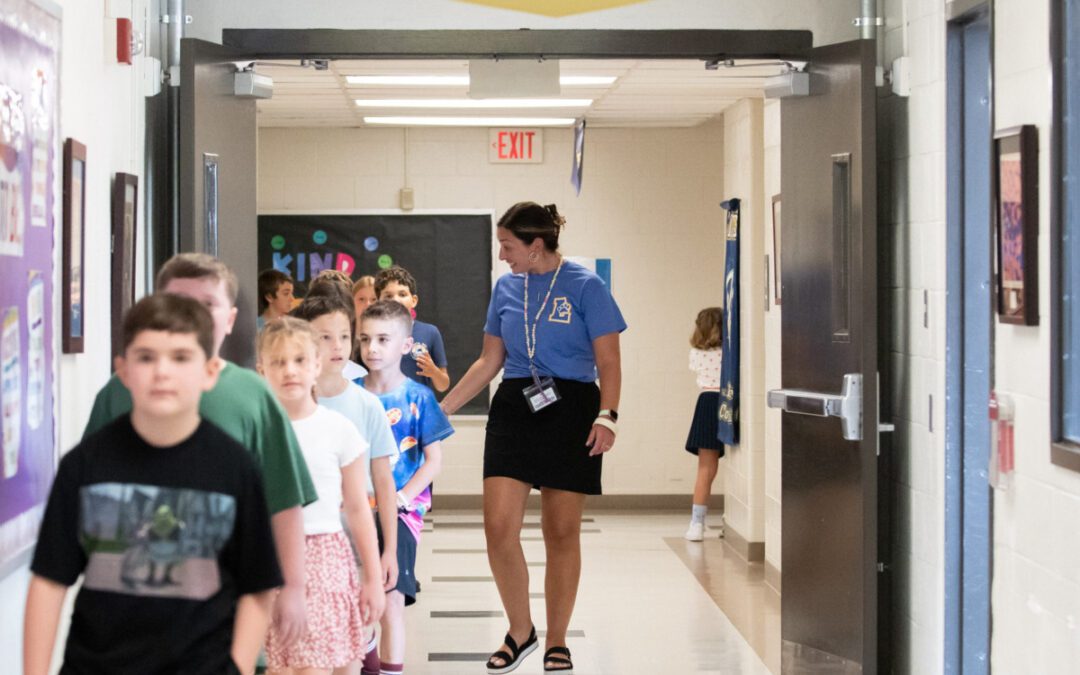
FILE - A building that formed part of the Carlisle Indian Industrial School campus is seen at U.S. Army's Carlisle Barracks, June 10, 2022, in Carlisle, Pa. (AP Photo/Matt Slocum, File)
The remains of nine more Native American children who died at a notorious government-run boarding school in Carlisle over a century ago were disinterred from a small Army cemetery and returned to families, authorities said Wednesday.
The remains were buried on the grounds of the Carlisle Barracks, home of the U.S. Army War College. The children attended the former Carlisle Indian Industrial School, where thousands of Indigenous children were taken from their families and forced to assimilate to white society as a matter of U.S. policy.
The Office of Army Cemeteries said it concluded the remains of nine children found in the graves were “biologically consistent” with information contained in their student and burial records. The remains were transferred to the children’s families. Most have already been reburied on Native lands, Army officials said Wednesday.
Workers also disinterred a grave thought to have belonged to a Wichita tribe child named Alfred Charko, but the remains weren’t consistent with those of a 15-year-old boy, the Army said. The remains were reburied in the same grave, and the grave was marked unknown. Army officials said they would try to locate Alfred’s gravesite.
“The Army team extends our deepest condolences to the Wichita and Affiliated Tribe,” Karen Durham-Aguilera, executive director of the Office of Army Cemeteries, said in a statement. “The Army is committed to seeking all resources that could lead us to more information on where Alfred may be located and to help us identify and return the unknown children in the Carlisle Barracks Post Cemetery.”
The nine children whose remains were returned were identified Wednesday as Fanny Chargingshield, James Cornman and Samuel Flying Horse, from the Oglala Sioux Tribe; Almeda Heavy Hair, Bishop L. Shield and John Bull, from the Gros Ventre Tribe of the Fort Belknap Indian Community; Kati Rosskidwits, from the Wichita and Affiliated Tribes; Albert Mekko, from the Seminole Nation of Oklahoma; and William Norkok, from the Eastern Shoshone Tribe.
The Army declined to release details on one grave disinterment, saying the tribe asked for privacy.
More than 10,000 children from more than 140 tribes passed through the school between 1879 and 1918, including Olympian Jim Thorpe. Founded by an Army officer, the school cut their braids, dressed them in military-style uniforms, punished them for speaking their native languages and gave them European names.
The children — often taken against the will of their parents — endured harsh conditions that sometimes led to death from tuberculosis and other diseases. The remains of some of those who died were returned to their tribes. The rest are buried in Carlisle.

Cyber charter schools in Pennsylvania would see funding cut under bill passed by the state House
A Democratic-sponsored proposal to limit per-student payments to Pennsylvania's cyber charter schools and make other changes to how they operate...

Starting a career in public education? Bucks County districts pay higher than average
New Hope-Solebury and Centennial school districts have the first and second highest average new teacher salaries in the state at $95,446 and...

Opinion: New poll finds Pennsylvanians oppose dismantling US Department of Education
Imagine for a moment what would happen if the public schools in your community suddenly lost millions of dollars in resources for student programs....

Centennial hires Abram Lucabaugh as superintendent. The vote wasn’t unanimous
A divided Centennial School Board voted Tuesday night to hire former Central Bucks Superintendent Abram Lucabaugh as the district’s next educational...

Penn State trustees vote to close 7 branch campuses amid declining enrollments
Penn State University's trustees voted Thursday night to close seven of its 19 branch campuses amid declining enrollments, demographic shifts and...




